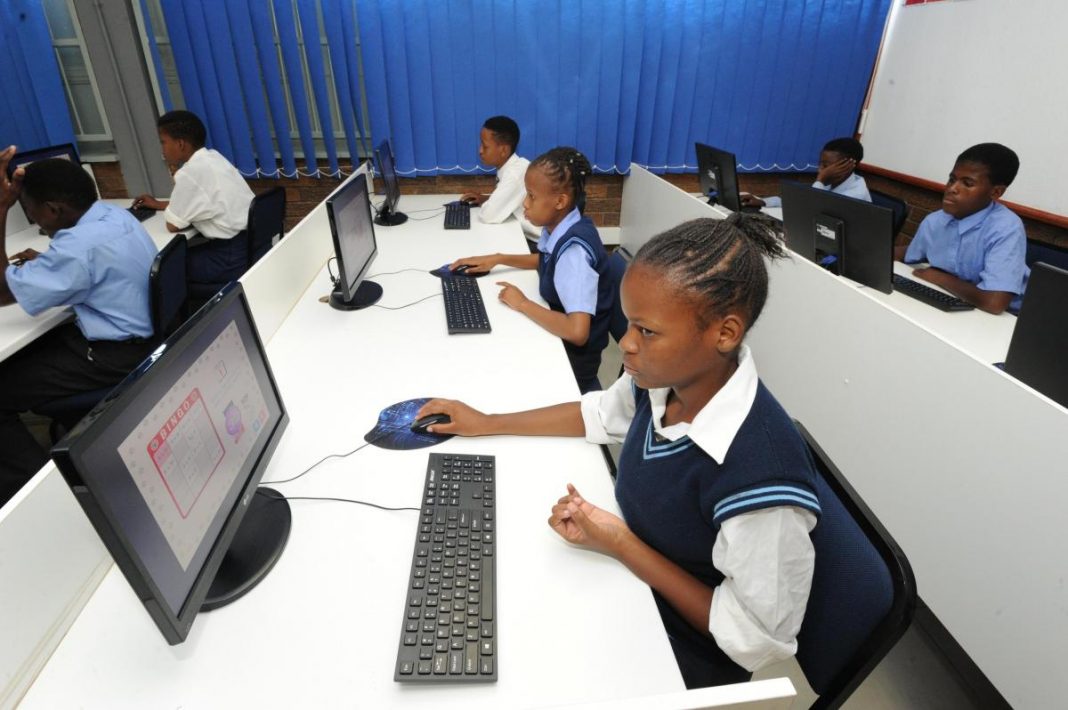Technology is playing an increasingly transformative role in supporting education across Africa, addressing challenges such as limited access to quality resources, teacher shortages, and geographic disparities. Here are several ways technology is contributing to education on the continent:
1. Digital Learning Platforms
- E-Learning and MOOCs: Platforms like Coursera, EdX, and Khan Academy provide free or low-cost courses, enabling students to access high-quality educational content.
- Local Platforms: African-based initiatives such as Eneza Education, Siyavula, and Ubongo offer curriculum-aligned resources and interactive learning experiences tailored to local needs.
- Offline Solutions: Platforms like Kolibri by Learning Equality allow access to digital content without internet connectivity.
Impact: These platforms have broadened educational access, particularly in remote or under-resourced areas.
2. Mobile Learning
- With high mobile phone penetration across Africa, mobile technology has become a key tool for education.
- SMS and USSD-Based Learning: Services like M-Shule provide educational content via basic mobile phones, making learning accessible to students without smartphones.
- Mobile Apps: Apps like iMlango and Tuteria connect students with teachers and resources, enhancing personalized learning.
Impact: Mobile learning bridges gaps for students in regions lacking traditional educational infrastructure.
3. Improved Access to Resources
- Digital Libraries: Platforms like Worldreader and African Storybook provide access to e-books and educational materials in local languages.
- Open Educational Resources (OER): Initiatives like OER Africa promote free access to educational content, reducing the cost of learning.
Impact: These resources democratize access to knowledge and help improve literacy rates.
4. Teacher Training and Support
- Online Professional Development: Tools like Teacher Education in Sub-Saharan Africa (TESSA) offer teachers professional training and resources online.
- AI and Analytics: Platforms like Eneza Education use data analytics to identify areas where students struggle, providing feedback to teachers to improve instruction.
Impact: Technology empowers teachers with tools to enhance their skills and deliver better education.
5. STEM and Coding Education
- Coding Bootcamps: Organizations like Andela and Moringa School focus on equipping young Africans with coding and tech skills.
- Tech Labs and Hubs: Programs like the African Code Week introduce students to programming and computational thinking.
Impact: These initiatives prepare students for jobs in the growing tech sector, fostering innovation and entrepreneurship.
6. Internet Connectivity and Infrastructure
- Satellite and Solar-Powered Schools: Companies like BRCK and initiatives like Project Loon provide internet access to schools in remote areas.
- Low-Cost Devices: Affordable laptops and tablets, like those provided by the One Laptop per Child initiative, help students and teachers access digital content.
Impact: Improved infrastructure enables more consistent and equitable access to education.
7. Addressing Language Barriers
- Local Language Content: Technology is being used to create and disseminate educational resources in multiple African languages, enhancing understanding and engagement.
- Translation Tools: AI-powered tools help translate educational material into native languages.
Impact: This ensures inclusivity and helps students learn effectively in their first language.
8. Promoting Lifelong Learning
- Adult Education: Mobile and online platforms offer literacy, numeracy, and vocational training for adults, helping them acquire skills for better employment.
- Skill-Based Courses: Platforms like LinkedIn Learning and Coursera offer courses to help Africans develop skills relevant to their careers.
Impact: Lifelong learning initiatives empower individuals to adapt to changing job markets.
9. Gamification and Interactive Learning
- Educational Games: Platforms like Ubongo Kids use gamified content to teach math, science, and social skills to children.
- Interactive Simulations: Tools like PhET simulations allow students to explore scientific concepts interactively.
Impact: Gamification makes learning more engaging and fosters creativity.
Challenges and Opportunities
While technology is revolutionizing education in Africa, challenges remain, such as:
- Infrastructure: Limited access to electricity and internet connectivity in rural areas.
- Affordability: The high cost of devices and data limits access for some students.
- Teacher Adoption: Ensuring teachers are trained and comfortable with using technology.
Opportunities: Governments, NGOs, and private-sector collaborations are working to address these challenges by investing in infrastructure, creating localized content, and promoting equitable access.
Technology’s role in education in Africa is growing rapidly, with significant potential to address long-standing challenges and improve outcomes. By leveraging innovative tools and collaborative efforts, the continent is poised for a more equitable and empowered educational future.

